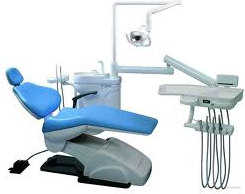Where Is the Tooth Fairy When You Need Her?
 I could say my life is full –– but that’s code for frenetically, overwhelmingly busy. Too busy to take care of me –– too busy to be healthy. It’s not that I don’t know what I need to do –– it’s finding the time to do it that’s the problem.
I could say my life is full –– but that’s code for frenetically, overwhelmingly busy. Too busy to take care of me –– too busy to be healthy. It’s not that I don’t know what I need to do –– it’s finding the time to do it that’s the problem.
And that’s what brought me here. Last week I had the extremely unpleasant experience of getting my wisdom teeth yanked out of my mouth. I’ve known for years that I needed to address these teeth, but I was always too busy avoiding the inevitable. It was finally a salad and fork that ultimately dealt me this hand.
Whether I’m making healthcare decisions for myself or my family, I’m definitely the one making the decisions. Novocain or anesthesia? Remove one broken wisdom tooth or all of them? Dentist or oral surgeon? Vicodin or Ibuprofen?
I walked back to the Chair Of Doom and the oral surgeon, who injected me with the Propopol that sent me off to wonderland (hello, Michael Jackson). I elected to have my wisdom teeth surgically removed –– which means cutting the gums open and breaking the tooth into pieces and pulling the pieces out. I have to admit –– it hurt, but I was trying not to be a baby in front of my son who I’m sure will eventually have to face this as well.
As a marketing-to-women specialist, I understand the purchasing power of female consumers. And though women make 90% of all consumer healthcare decisions –– some $500 billion a year -–– we are still considered a niche market in the healthcare category. In other words, marketing healthcare to women isn’t a priority for many brands.
What do women want from their healthcare providers? For starters, prescriptions that can be sent electronically to the pharmacy from the doctor’s office. Doctors that can provide resources for answers to a patient’s questions before their appointment. In general –– the same customer attention they demand from other consumer products and services. Now more than ever, healthcare marketers need to understand that women want resources they can trust, and should be looking to create lifetime relationships with these important consumers.
Do you feel your providers are marketing healthcare to you?




 Although it was celebrated during Greek times, Mother’s Day didn’t become official till 1907. Today, nearly 83 million Moms in the U.S. will find themselves celebrated with some form of Mother’s Day tribute. This year Mother’s Day will find competing brands
Although it was celebrated during Greek times, Mother’s Day didn’t become official till 1907. Today, nearly 83 million Moms in the U.S. will find themselves celebrated with some form of Mother’s Day tribute. This year Mother’s Day will find competing brands 